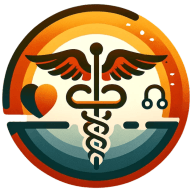In the dynamic world of healthcare, management solutions have emerged as a powerful tool for streamlining operations, improving patient care, and enhancing overall efficiency. This blog post delves into the transformative potential of healthcare management solutions, exploring their various facets, applications, and benefits. Join us as we navigate the intricacies of these innovative tools, shedding light on how they are revolutionizing the healthcare industry.
The Essence of Healthcare Management Solutions
Healthcare management solutions are comprehensive systems designed to manage, coordinate, and streamline various aspects of healthcare services. They encompass a wide range of functionalities, from patient data management to scheduling, billing, and reporting.
These solutions are not just about digitizing paperwork. They are about transforming the way healthcare providers operate, making them more efficient, patient-centric, and adaptable to changing needs. They enable healthcare providers to focus more on patient care and less on administrative tasks, thereby improving the quality of care.
Healthcare management solutions are also about harnessing the power of data. They collect, store, and analyze vast amounts of data, providing valuable insights that can guide decision-making and strategy. They can identify trends, patterns, and anomalies, helping healthcare providers to anticipate and respond to emerging challenges.
Moreover, healthcare management solutions are about connectivity. They facilitate communication and collaboration among healthcare providers, patients, and other stakeholders. They ensure that everyone involved in a patient's care has access to the same information, promoting transparency and coordination.
The Benefits of Healthcare Management Solutions
The benefits of healthcare management solutions are manifold. They can enhance efficiency, improve patient care, reduce errors, and save costs.
Efficiency is a key benefit. By automating routine tasks, healthcare management solutions can save time and effort, allowing healthcare providers to focus on more important things. They can also streamline workflows, eliminating bottlenecks and redundancies.
Patient care is another major benefit. By providing a holistic view of a patient's health, healthcare management solutions can facilitate personalized, proactive care. They can also improve patient engagement, enabling patients to take a more active role in their health.
Error reduction is another significant benefit. By eliminating manual data entry, healthcare management solutions can reduce the risk of errors, ensuring the accuracy and reliability of patient data.
Cost savings is yet another benefit. By improving efficiency and reducing errors, healthcare management solutions can help healthcare providers to save costs. They can also help to optimize resource utilization, reducing waste and inefficiency.
The Challenges of Implementing Healthcare Management Solutions
Despite their benefits, implementing healthcare management solutions is not without challenges. These include technical issues, resistance to change, and privacy concerns.
Technical issues can be a major hurdle. Implementing a healthcare management solution requires a robust IT infrastructure, which can be costly and complex to set up. It also requires technical expertise, which may not be readily available in all healthcare settings.
Resistance to change is another common challenge. Many healthcare providers are used to traditional ways of doing things and may be reluctant to adopt new technologies. Overcoming this resistance requires strong leadership, effective communication, and ongoing training and support.
Privacy concerns are also a significant challenge. Healthcare management solutions handle sensitive patient data, which must be protected from unauthorized access and misuse. This requires robust security measures, as well as compliance with privacy laws and regulations.
The Future of Healthcare Management Solutions
The future of healthcare management solutions looks promising. With advancements in technology, these solutions are becoming more sophisticated, versatile, and user-friendly.
Artificial intelligence (AI) is one of the technologies shaping the future of healthcare management solutions. AI can analyze vast amounts of data, identifying patterns and trends that can inform decision-making. It can also automate routine tasks, freeing up healthcare providers to focus on more complex tasks.
Blockchain is another technology with potential. By providing a secure, decentralized ledger of transactions, blockchain can enhance the security and transparency of healthcare data.
Telemedicine is also a growing trend. With the rise of remote healthcare, management solutions will need to facilitate virtual consultations, remote monitoring, and other telemedicine services.
Despite the challenges, the future of healthcare management solutions is bright. With the right strategies and technologies, these solutions can transform the healthcare industry, delivering better care for all.
Choosing the Right Healthcare Management Solution
Choosing the right healthcare management solution is crucial. It requires a thorough understanding of your needs, a careful evaluation of different options, and a commitment to ongoing improvement.
Understanding your needs is the first step. You need to identify your pain points, goals, and constraints. You also need to consider your IT infrastructure, resources, and capabilities.
Evaluating different options is the next step. You need to compare different solutions in terms of their features, usability, scalability, and support. You also need to consider their cost, both upfront and ongoing.
Committing to ongoing improvement is the final step. Implementing a healthcare management solution is not a one-time event, but a continuous process. You need to monitor the performance of the solution, gather feedback, and make adjustments as needed.
Conclusion
Healthcare management solutions are transforming the healthcare industry. They are making healthcare providers more efficient, patient-centric, and data-driven. They are enabling better care, better outcomes, and better experiences for all.
However, implementing these solutions is not without challenges. It requires a robust IT infrastructure, a willingness to change, and a commitment to privacy and security.
Despite these challenges, the future of healthcare management solutions is promising. With advancements in technology and a growing recognition of their benefits, these solutions are set to play an increasingly important role in healthcare.
Harnessing the Power of Healthcare Management Solutions
As we navigate the complexities of healthcare, management solutions offer a beacon of hope. They promise a future where healthcare is not just about treating illness, but about promoting wellness; not just about managing patients, but about empowering them; not just about data, but about insights. By embracing these solutions, we can transform healthcare, making it more efficient, effective, and equitable for all.

